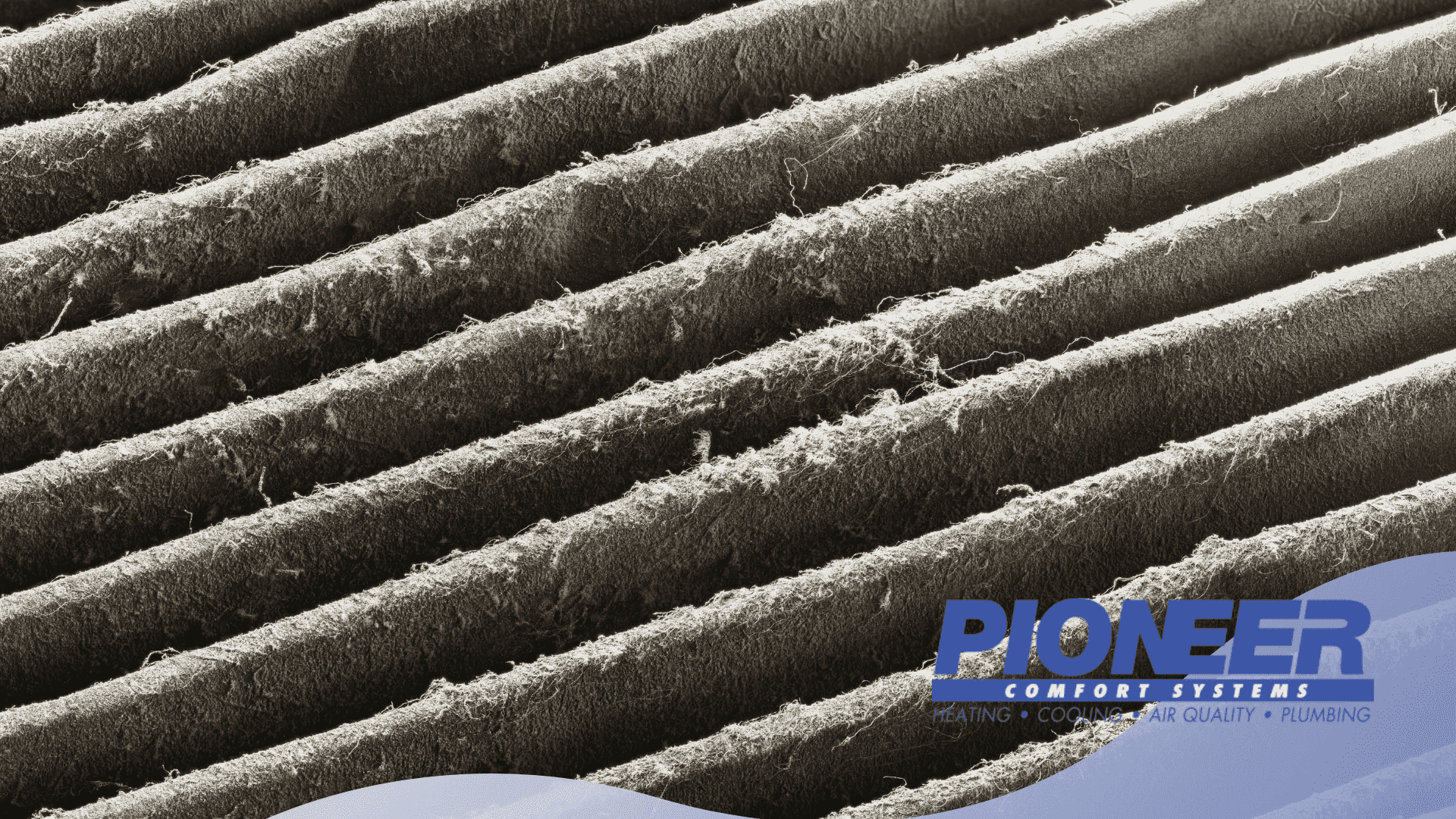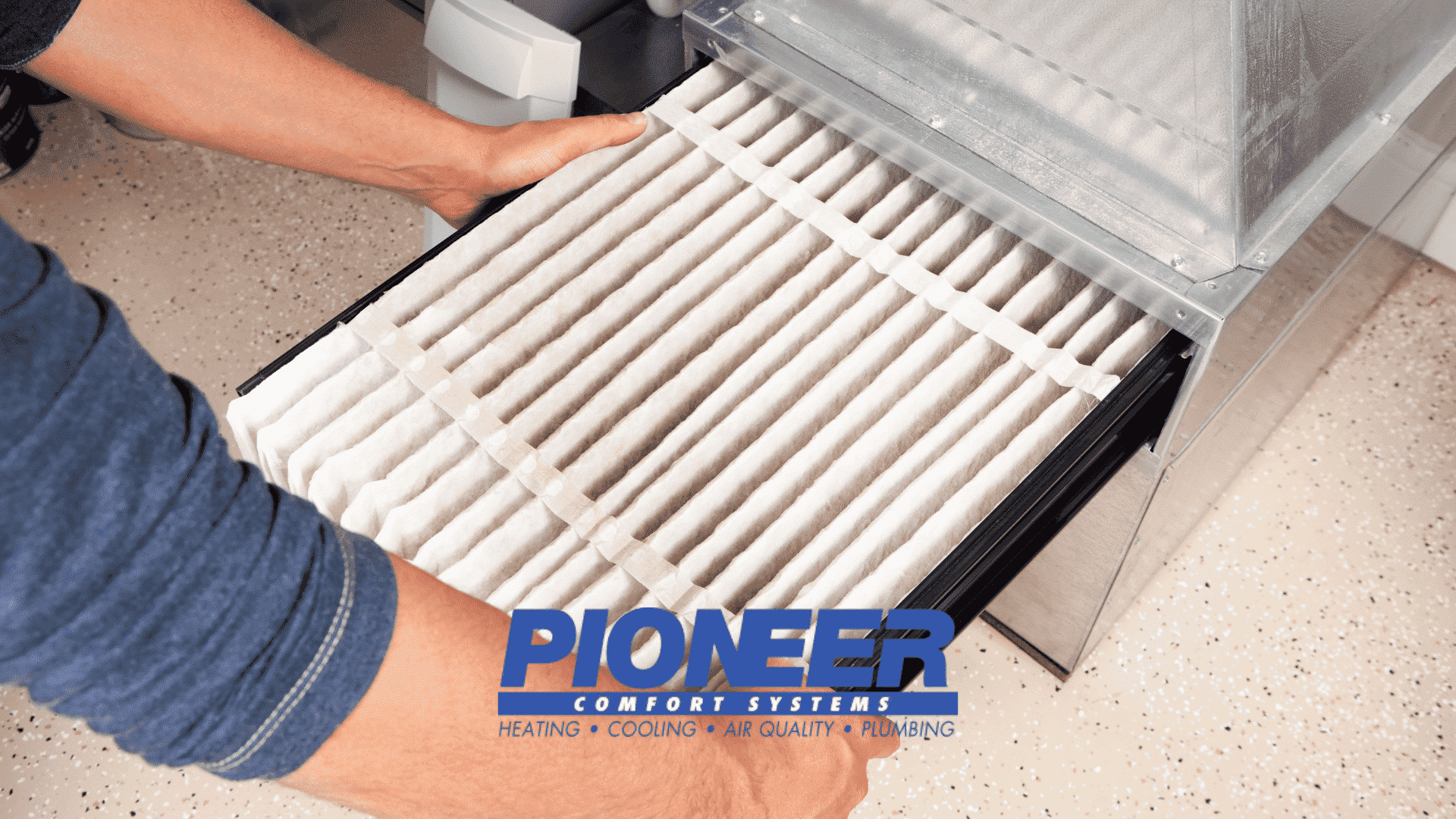When looking for ways to keep your home’s HVAC system running smoothly, maintaining your furnace, AC, or heat pump’s air filter should be at the top of your list.
In addition to saving on energy, selecting the right filter for your home can prevent premature breakdowns of equipment and improve indoor air quality. In this post, we’ll explain what the MERV rating for air filtration systems means.
What is a MERV Rating?
MERV stands for minimum efficiency reporting value. Many homeowners do not realize that HVAC filters come in many different types and efficiency levels. MERV ratings provide insight into the effectiveness of an air filter.
MERV Rating Chart
MERV ratings range from 1-16, with the highest MERV rating (or the best MERV rating) being 16. With a higher MERV rating, the filter has a stronger ability to screen out the smallest particles possible.
The MERV rating chart was designed by the American Society of Heating Refrigerating & Air Conditioning Engineers. This standardized system allows consumers to quickly compare and identify different filters’ ability to screen large and small particles.
Airborne Particles Filtered by the Standard MERV Rating
Understanding the types of particles filtered by the standard MERV rating is vital for anyone seeking to improve their indoor atmosphere.
MERV-rated filters are designed to capture a wide range of airborne contaminants including:
- dust
- pollen
- pet dander
- mold spores
- some bacteria and viruses
Now that we’ve delved into the MERV rating system, we’ll shed light on its effectiveness in addressing various particles and help you make informed choices for cleaner filtration in your home or business.

Which MERV Rating Should I Use
While higher MERV ratings are associated with high-efficiency particulate air filters, this doesn’t mean that they’re necessarily what you need.
Filters with a MERV rating higher than 12, such as MERV 13 filters, tend to impede system air flow, requiring a contractor to retrofit your HVAC system to accommodate this denser, and usually larger, filter.
The higher-rated MERV filters can put undue pressure on your forced-air system, leading to premature breakdowns and reduced filtration efficiency.
Recommended MERV Rating
The air inside homes typically contains a wide range of contaminants, especially in heavily polluted areas. An air filter with a MERV rating from 7-12 should be able to remove most of them.
The recommended MERV rating for your air filter largely depends on your specific needs and your HVAC system’s capabilities. For most residential settings, a MERV rating between 7 and 12 strikes a good balance between effective filtration and system airflow.
This range effectively captures common allergens and pollutants while ensuring your HVAC system operates smoothly. However, in certain circumstances, like hospital settings or places with specific health concerns, a higher MERV rating may be appropriate.
A MERV filter within these parameters would be sufficient to filter out:
- Dust mites and dust particles (including humidifier dust, carbon dust, pollen dust, and lead dust)
- Pet dander
- Mold spores
- Bacteria
- Textile and carpet fibers
- Cooking oil
- Burning wood
- Auto fumes and emissions
- Insecticides
- Indoor sprays, such as hair spray
- Tobacco smoke and other carcinogenic materials
- Smog and combustion smoke
Air filters with a MERV rating above this range (such as a MERV 13) are typically only needed in sterile settings where the air filter’s effectiveness against virus carriers and other contaminants is exponentially more important than air flow.
It’s essential to consult with an HVAC professional, like Pioneer Comfort Systems, to determine the ideal MERV rating for your unique situation and to maintain a healthy and efficient indoor environment.

MERV Rating and Filter Replacement
Where air filters fall on the MERV rating chart will also have a direct impact on how often the MERV filter needs to be changed.
Filters higher on the MERV rating chart trap more dust particles while filtering air and, therefore, get clogged sooner. A clogged MERV filter can have a detrimental effect on your HVAC system as well as decrease the air quality in your home if you aren’t changing furnace filters or your air filter regularly.
Maintaining a healthy indoor environment is crucial, and understanding the relationship between the MERV rating chart and replacing filters is key to achieving that goal.
Choosing the right MERV rating is important, but equally vital is adhering to a proper replacement schedule based on the MERV filter rating. Neglecting to change your MERV filter can strain your HVAC system, leading to reduced energy efficiency and potentially costly AC repairs.It’s a small maintenance step that can make a big difference in your comfort and home or office’s indoor air quality in Shreveport.
Types of Air Filters
Understanding the difference between filters can make choosing a filter with the right MERV rating for your home much easier. At Pioneer Comfort Systems, we always want you to have the best air filter for your home.
Disposable Fiberglass Air Filter
These filters typically have a filter rating of 1-4. They have the capability to prevent large particles from getting into the air stream.
While disposable fiberglass filters are inexpensive, costing a couple of dollars at most, they won’t do much to improve indoor air quality.
Disposable Pleated Air Filter
These popular filters are typically made from cotton or polyester and, with the greater surface area as a result of folds in the filter material, can remove smaller particles from the air.
With MERV ratings of 6-8, they do a good job of removing most of the unwanted particles.
Disposable Electrostatic Air Filter
These filters trap small particles on cotton or paper that have an electrostatic charge. They have MERV ratings of around 10. These filters are available in most standard sizes, but specialty sizes can be expensive.
Due to the cleaning ability of these filters, they are good for homes with small children or pets. They filter out smaller particles, including allergens, dust mites, pet dander, pollen dust, and mold spores from your home’s air.
Permanent Electrostatic Air Filter
With a MERV rating of 8, the permanent electrostatic filter is similar to the disposable version. These filters have a washable filter, which allows it to have a useful life of between six and eight years.
This allows you to potentially reduce your energy bill while not having to spring for new filtration devices as often.
High-Efficiency Pleated Air Filter
The most expensive filter option, these filters have ratings of 14-16–the highest on the MERV scale.
They are relatively expensive but have the ability to screen out even the smallest particulates of any MERV rating.
Hospitals and other institutions typically use this type of filter. They are much thicker than standard filters and require serious system modifications to work in a typical residential HVAC setup.
Improve Indoor Air Quality By Calling Shreveport’s Best HVAC Company
We hope this guide on MERV filter ratings has been informative and valuable to you. Understanding the Minimum Efficiency Rating is essential in making informed decisions about your indoor air quality.
As your trusted Shreveport HVAC company, we emphasize the importance of selecting the right MERV filter rating for your HVAC system to ensure both efficient filtration and optimal system performance.
Feel free to reach out to us for any HVAC needs, from the best filter recommendations to system maintenance, because your comfort is our priority. Contact Pioneer Comfort Systems today!

